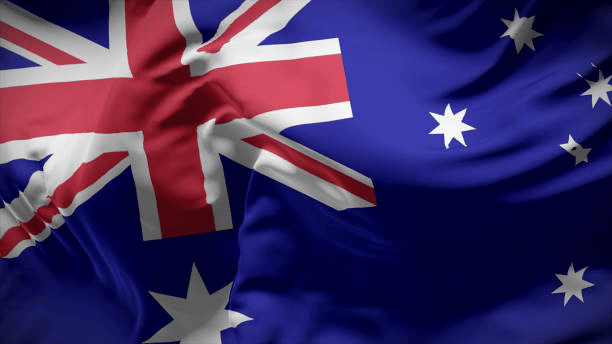The idea of identity declaration citizenship is growing in significance in today’s interconnected world. Anyone looking to establish their rights and legal standing in a country, especially Australia, must go through this process. Like others all across the world, citizens of New South Wales (NSW) may have to go through this complicated process if they want to immigrate, have their personal situation changed, or want to formalise their position in the country.
The first step to full legal recognition and citizenship rights is understanding identity declaration citizenship.
The Essence of Identity Declaration Citizenship
Identity declaration citizenship is a formal process where individuals assert their status, submitting detailed information to authorities. In Australia, especially NSW, the process follows strict regulations to protect individuals and maintain citizenship records’ integrity.
Key Components
- Documentation: Applicants must provide comprehensive evidence of their identity, background, and eligibility for citizenship.
- Verification: Authorities rigorously check the submitted documents to verify their authenticity and relevance.
- Legal Framework: The process is underpinned by Australian citizenship laws, ensuring consistency and fairness in how applications are assessed.
Importance of Identity Declaration Citizenship
In Australia, securing your identity declaration citizenship is not merely a formality; it’s a vital step in becoming a full participant in society. This declaration affects voting, access to public services, healthcare, employment opportunities, and freedom of movement.
Why It Matters
- Legal Identity: Establishing a recognised legal identity enables individuals to engage in various civil activities without legal barriers.
- Social Benefits: An Australian citizen has access to healthcare, education, social security, and other public services.
- Political Rights: Only Australian citizens can vote or run for public office, playing an active role in shaping the country’s future.
Navigating the Process in NSW
The journey towards identity declaration citizenship in NSW can be complex, given the stringent requirements and detailed scrutiny involved. Applicants need to be thoroughly prepared and well-informed to navigate this process successfully.
Steps to Take
- Gather Necessary Identification Documents: Birth certificates, passports, current residential address, and other identity documents must be collected and prepared. Naturally, you will need to fill up the Form 1195 identity declaration form. Click here to see the form.
- Every individual applying online for citizenship or proof of citizenship must submit a separate Form 1195. So if you are applying with your family, each member must provide their own form.
- Understand the Requirements: Familiarising yourself with the specific criteria and documentation needed for the application is crucial.
- Seek Professional Advice: Legal professionals can offer invaluable guidance and assistance throughout the process.

Challenges and Solutions in Identity Declaration Citizenship
Navigating the path towards identity declaration citizenship, particularly in New South Wales (NSW), Australia, can often feel like a journey fraught with bureaucratic red tape and intricate legal requirements. This process, vital for those seeking to cement their legal status within the country, involves navigating a complex maze of documentation and understanding nuanced legal criteria. However, while the road may appear daunting, it is navigable with the right approach and resources.
Common Hurdles
Applicants often encounter several significant obstacles that can complicate the process of identity declaration citizenship:
- Documentation Issues: One of the most common challenges is dealing with the array of required documents in your identity declaration form. Applicants must provide comprehensive evidence of their identity, background, and eligibility. Missing or incorrect documents can not only delay the process but can sometimes lead to the rejection of the application altogether. This can be especially challenging for those who may not have ready access to certain documents or who have documents that do not meet the stringent requirements set forth by the authorities.
- Understanding Legal Requirements: The legal framework governing identity declaration citizenship is dense and filled with jargon that can be difficult for laypersons to navigate. The detailed criteria and regulations that need to be met can often be overwhelming, leading to confusion and mistakes in the application process. This challenge is compounded for those whose first language is not English or for individuals who are not familiar with legal procedures.
Overcoming Difficulties
Despite these obstacles, there are clear pathways to overcoming them, ensuring that the journey towards identity declaration citizenship is successful:
- Professional Guidance: One of the most effective ways to navigate the complexities of the citizenship process is to engage with legal experts. Solicitors and legal advisors who specialise in citizenship and immigration law can offer invaluable assistance. They possess a deep understanding of the legal landscape and can provide tailored advice that addresses the unique challenges of each applicant. These professionals can help simplify the process by explaining legal requirements in understandable terms, advising on the necessary documentation, and even assisting with the completion and submission of applications.
- Preparation and Organisation: A proactive approach towards preparation and organisation can significantly mitigate the challenges associated with documentation and legal requirements. Applicants should begin by meticulously gathering all necessary documents, double-checking for accuracy and completeness. It’s also advisable to create an organised system for tracking application progress and requirements. Being well-prepared also means doing thorough research or attending informational sessions on the citizenship process to gain a clearer understanding of what is expected.
- Utilising Official Resources: Government websites and official channels often provide comprehensive guides and checklists that can help applicants ensure they meet all requirements. Utilising these resources can provide clarity and reduce the risk of errors or omissions in the application process.
- Community Support and Resources: Engaging with community organisations and groups that offer support and advice to applicants can also be beneficial. These organisations often have experience dealing with common issues and can offer practical advice and assistance based on past experiences.
Could a Change in Government Undo This New Pathway to Citizenship?
The direct citizenship pathway for New Zealanders with non-protected SCVs is established by an Australian Citizenship Act amendment.
- This amendment did require a vote in Parliament, unlike changes made solely through regulations.
- The absence of a “sunset clause” means the policy isn’t automatically reviewed after a set period.
However, a future government could introduce new legislation to reverse the change, which would also need Parliament’s approval.
How To Get Citizenship Certificate for Baby Born in Australia?
A baby born in Australia may automatically be an Australian citizen depending on their parents’ immigration status. To apply for their citizenship certificate, you’ll need to gather some documents:
- Baby’s Full Birth Certificate: This document should include both parents’ names.
- Baby’s Passport (Optional): If your baby already has a passport from another country, include it in the application.
- Proof of Name Change (if applicable): If a parent’s name has changed since the birth certificate was issued, provide proof of the name change.
- Passport Sized Photograph: A recent photo of your baby, similar to what’s required for a passport.
- Identity Declaration: An authorised Australian citizen must sign the identity declaration to verify your baby’s identity. This could be a doctor, nurse, teacher, or other authorised person.
Your Pathway to Identity Declaration Citizenship
The journey to identity declaration citizenship in NSW involves rigorous processes and promises a new life chapter. Understanding this declaration’s importance lets applicants confidently progress, nearing their inclusion in the Australian community.

Finding the Right Legal Partner
Navigating identity declaration citizenship’s complexity is easier with the right legal partner. JB Solicitors are experts in Australian citizenship laws, a premier choice for individuals in NSW.
Contact us today if you want to be granted Australian citizenship.
